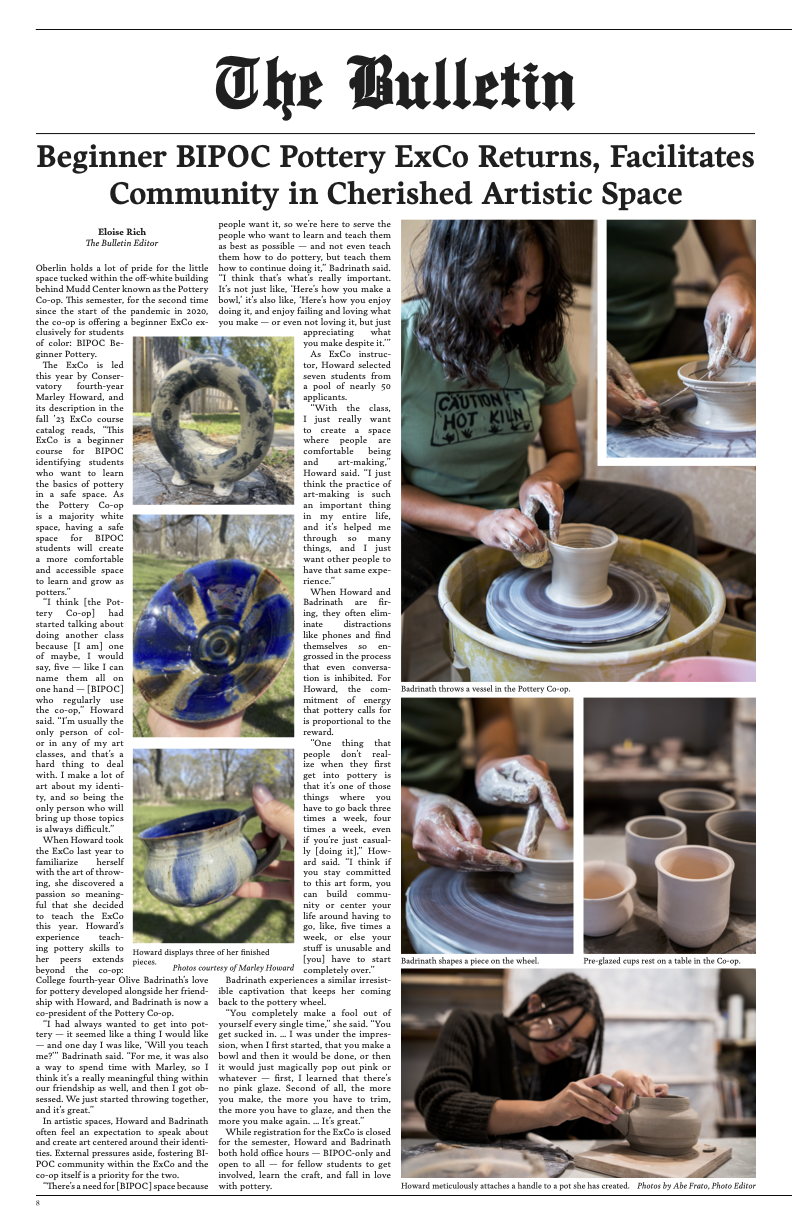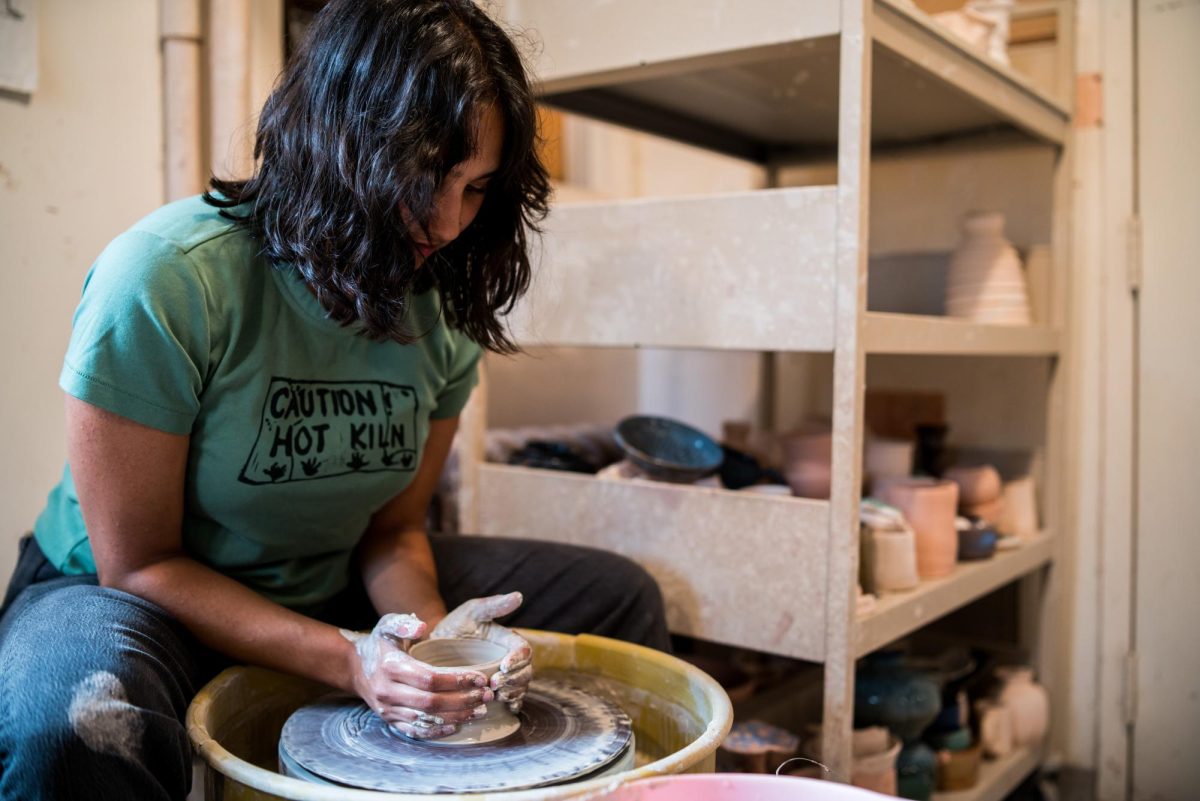Oberlin holds a lot of pride for the little space tucked within the off-white building behind Mudd Center known as the Pottery Co-op. This semester, for the second time since the start of the pandemic in 2020, the co-op is offering a beginner ExCo exclusively for students of color: BIPOC Beginner Pottery.
The ExCo is led this year by Conservatory fourth-year Marley Howard, and its description in the fall ’23 ExCo course catalog reads, “This ExCo is a beginner course for BIPOC identifying students who want to learn the basics of pottery in a safe space. As the Pottery Co-op is a majority white space, having a safe space for BIPOC students will create a more comfortable and accessible space to learn and grow as potters.”
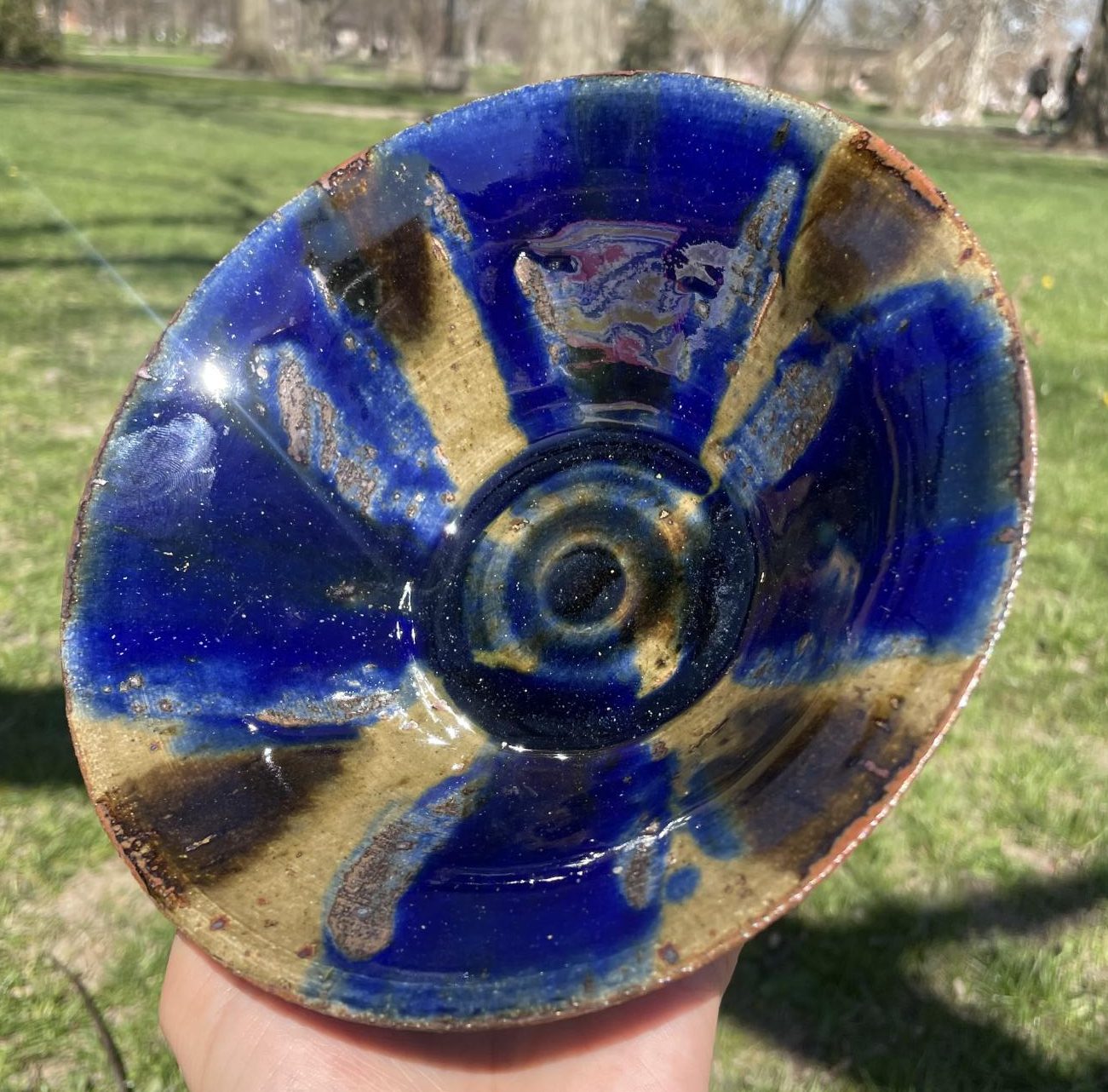
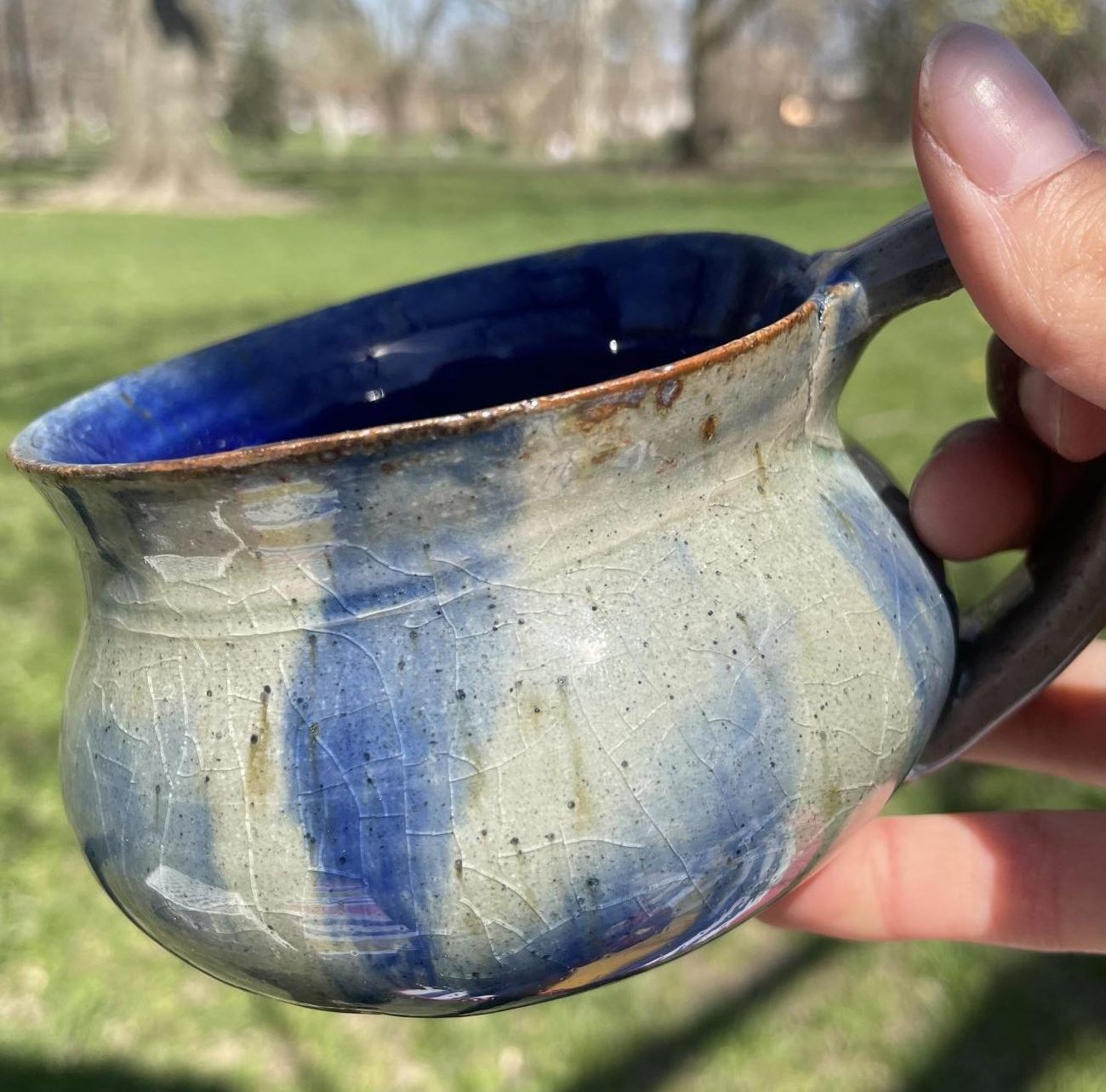 Two pieces Howard has made.
Two pieces Howard has made.“I think [the Pottery Co-op] had started talking about doing another class because [I am] one of maybe, I would say, five — like I can name them all on one hand — [BIPOC] who regularly use the co-op,” Howard said. “I’m usually the only person of color in any of my art classes, and that’s a hard thing to deal with. I make a lot of art about my identity, and so being the only person who will bring up those topics is always difficult.”
When Howard took the ExCo last year to familiarize herself with the art of throwing, she discovered a passion so meaningful that she decided to teach the ExCo this year. Howard’s experience teaching pottery skills to her peers extends beyond the co-op: College fourth-year Olive Badrinath’s love for pottery developed alongside her friendship with Howard, and Badrinath is now a co-president of the Pottery Co-op.
“I had always wanted to get into pottery — it seemed like a thing I would like — and one day I was like, ‘Will you teach me?’” Badrinath said. “For me, it was also a way to spend time with Marley, so I think it’s a really meaningful thing within our friendship as well, and then I got obsessed. We just started throwing together, and it’s great.”
In artistic spaces, Howard and Badrinath often feel an expectation to speak about and create art centered around their identities. External pressures aside, fostering BIPOC community within the ExCo and the co-op itself is a priority for the two.
“There’s a need for [BIPOC] space because people want it, so we’re here to serve the people who want to learn and teach them as best as possible — and not even teach them how to do pottery, but teach them how to continue doing it,” Badrinath said. “I think that’s what’s really important. It’s not just like, ‘Here’s how you make a bowl,’ it’s also like, ‘Here’s how you enjoy doing it, and enjoy failing and loving what you make — or even not loving it, but just appreciating what you make despite it.’”
As ExCo instructor, Howard selected seven students from a pool of nearly 50 applicants.
“With the class, I just really want to create a space where people are comfortable being and art-making,” Howard said. “I just think the practice of art-making is such an important thing in my entire life, and it’s helped me through so many things, and I just want other people to have that same experience.”
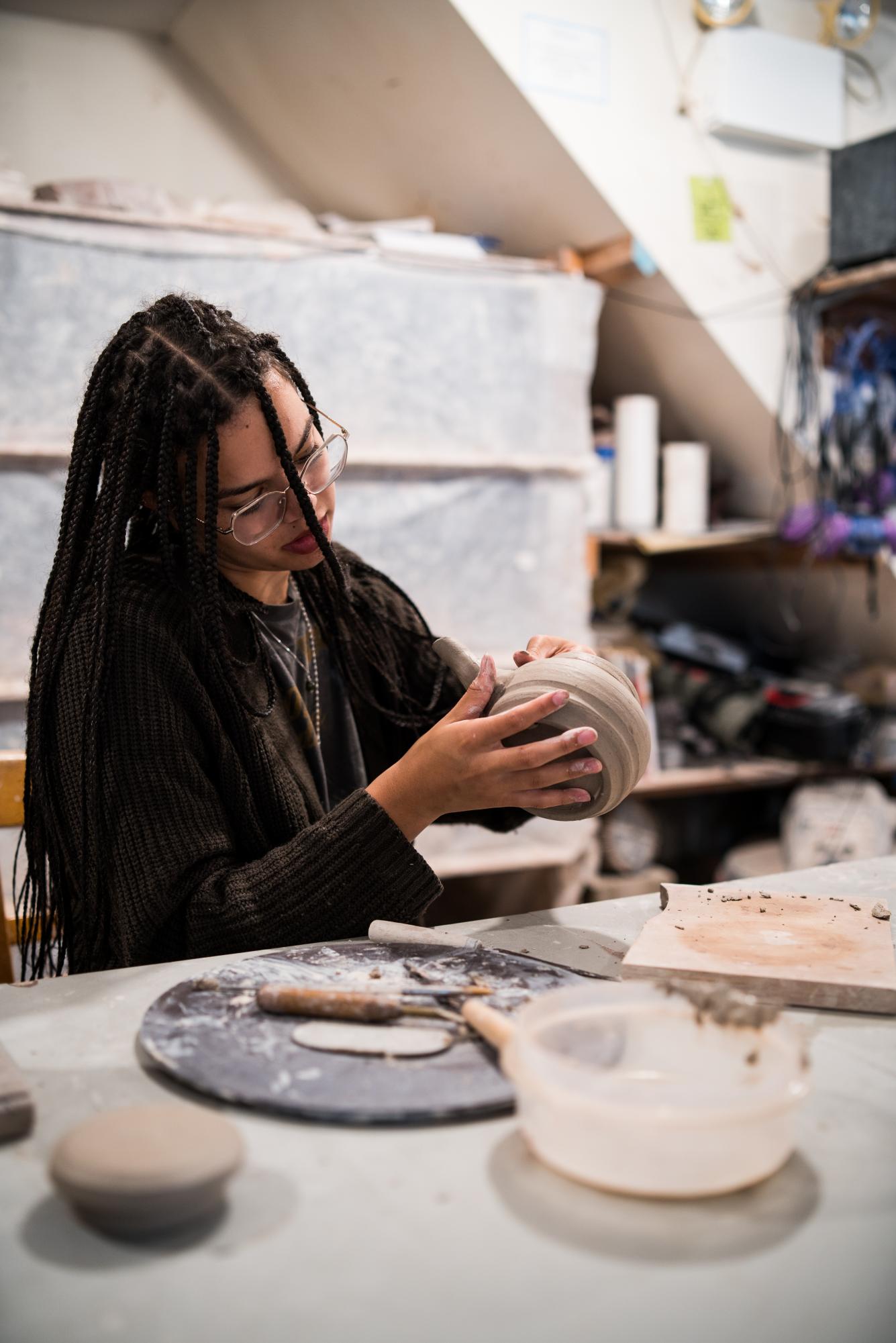
When Howard and Badrinath are firing, they often eliminate distractions like phones and find themselves so engrossed in the process that even conversation is inhibited. For Howard, the commitment of energy that pottery calls for is proportional to the reward.
“One thing that people don’t realize when they first get into pottery is that it’s one of those things where you have to go back three times a week, four times a week, even if you’re just casually [doing it],” Howard said. “I think if you stay committed to this art form, you can build community or center your life around having to go, like, five times a week, or else your stuff is unusable and [you] have to start completely over.”
Badrinath experiences a similar irresistible captivation that keeps her coming back to the pottery wheel.
“You completely make a fool out of yourself every single time,” she said. “You get sucked in. … I was under the impression, when I first started, that you make a bowl and then it would be done, or then it would just magically pop out pink or whatever — first, I learned that there’s no pink glaze. Second of all, the more you make, the more you have to trim, the more you have to glaze, and then the more you make again. … It’s great.”
While registration for the ExCo is closed for the semester, Howard and Badrinath both hold office hours — BIPOC-only and open to all — for fellow students to get involved, learn the craft, and fall in love with pottery.